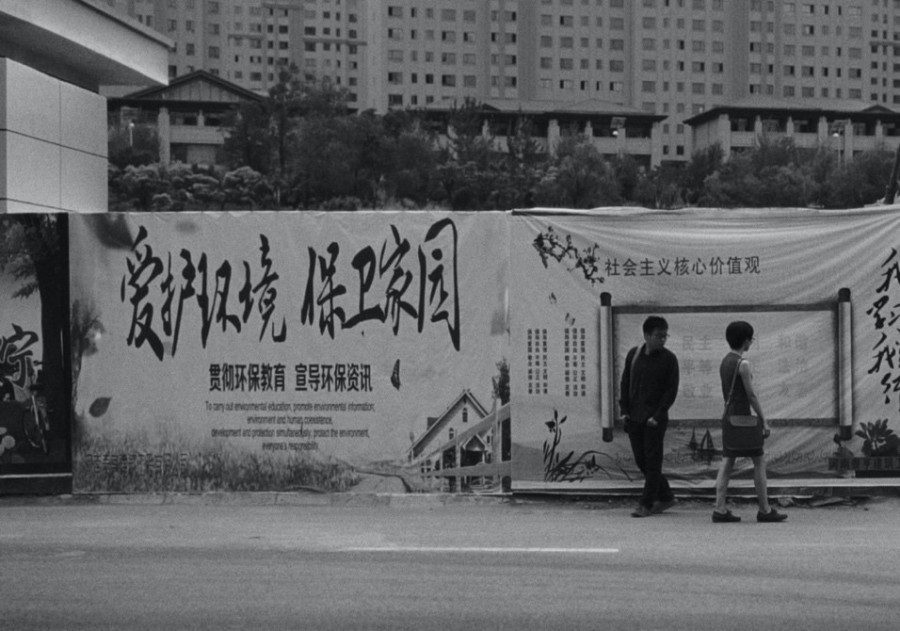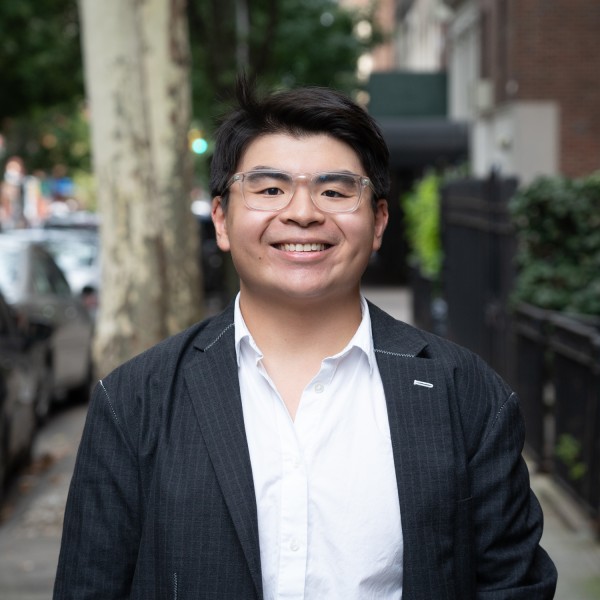NYU’s 10th Reel China Biennial envisions promising future for independent Chinese cinema
The Tisch Cinema Studies Department, the Asian Film & Media Initiative, and the Center for Religion and Media co-presented the first Reel China festival since the start of the pandemic.
Still: “Future Flowers,” a film directed by professor Zhou Hao, was featured in the 10th Reel China Biennial at NYU. (Image by Zhou Hao via NYU Tisch)
November 8, 2022
Hosted from Oct. 28-30, NYU’s 10th Reel China Biennial was the festival’s first post-pandemic iteration and celebrated a two-decade-long mission to showcase some of the most outstanding contemporary independent Chinese-language films produced in mainland China and beyond.
Since its inception in 2001, Reel China has always stood out as a rare venue where international audiences could take a peek into the world of the modern cinemascape in the People’s Republic of China. Twenty one years later, this latest edition of the program captures the seismic cultural, political and artistic shifts occurring in China. The festival itself has transformed in regard to the scope of films and filmmakers it has decided to feature.
This edition of Reel China continues to exhibit portraits of everyday life in mainland China that shed light on a variety of often overlooked social groups. One such example is Li Wei’s award-winning documentary “Silence in the Dust,” a heart-wrenching depiction of working-class life in rural China. The film follows Dazhang, a terminally ill father, who spends his final days bedridden at home due to contracting pneumoconiosis, commonly referred to as Black Lung Disease while working at a quartz factory. As his health continues to deteriorate, the film also cuts to Dazhang’s children, carefree and oblivious to their father’s pain.
In the Q&A, Li said that one of his goals was to raise awareness for the 6 million working-class families suffering from cases of Pneumoconiosis. The film portrays this phenomenon as not just a health crisis, but also a reference to the endemic suffering that the working class is subjected to in China. Despite living under a socialist state, unchecked capitalist practices have wrecked the lives of countless working-class people. Volunteers and charity organizations support those victims in place of the central government, which provides little aid. Films like “Silence in the Dust” make good use of the medium to portray the realities of the common people and advocate for social issues neglected by mainstream media.
Tisch Cinema Studies Professor Zhang Zhen, co-organizer and programmer of the event, stressed that Reel China was “not easy to organize when COVID is still kind of going on” and the “pandemic has shaped the way we put the program together.”
With persisting health risks, travel restrictions and bureaucratic red tape in China, it would be difficult for many mainland filmmakers to attend the event. However, this year’s roster was highly diversified, including Sinophone creators who lived outside China, like Florida-based queer filmmaker Cui Zi’en and New York-based Zhao Dayong.
This year also saw a new partnership with the streaming website Cathay Play, a platform that promotes independent Sinophone cinema. The streaming site provided three short films directed by members of the Xinjiang and Tibet ethnic minorities, a truly significant event in the largely Han-dominated Chinese cinema. According to Zhang, one of her goals in programming the films for this year’s Reel China was to put a “searchlight for previously least represented filmmakers.” Reel China’s program encapsulates the multifacetedness of contemporary China’s diverse sexual, ethnic and class differences.
Having stood the test of time for over two decades, Reel China is a significant milestone for 21st century Chinese independent filmmaking. However, the festival has also allowed attendees to pause and reflect on China’s journey into the new millennia so far. Since the start of the festival, the international community has witnessed sweeping changes in Chinese culture and society. Prosperity and increasing openness marked Chinese society in the early 2000s, but now as political tensions exponentially rise in the post-pandemic era, Zhang notes that the country has gone through an assortment of openings and closings.
In times of increased state censorship and sycophantic political zeal, the preservation of independent and dissenting voices in the arts has never been more important. These changes have made organizers, like Zhang, want to reorient the goals of the festival. She wanted to continue “supporting independent cinema in China, but also coalescing it with a broader Sinophone landscape.” She even pointed out that Reel China may need to change its name to better suit more “globally distributed Chinese language independent films” if future festivals feature a higher number of Chinese diaspora filmmakers.
With the conclusion of the festival, Reel China was able to bring together students, faculty and filmmakers. Although the world has changed significantly since the first run of the festival, the platform continues to cultivate emerging independent filmmakers and display their works to an international audience. Zhang said that being able to revive the festival after the tumult of COVID-19 “felt like a homecoming and reunion for the community.”
Contact Mick Gaw at [email protected].

























































































































































